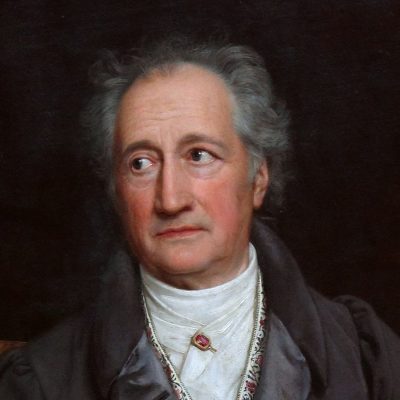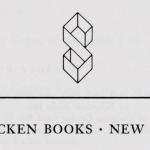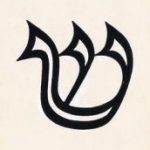Johann Wolfgang von Goethe
Schocken’s favorite German scholar was the 19th century romantic writer and statesman Johann Wolfgang von Goethe (1749 – 1832). Goethe’s second novel, Wilhelm Meister’s Apprenticeship, described a young man’s journey of self-realization. Schocken, the self-made tycoon and autodidact, was deeply influenced by Goethe’s novel. One of his favorite quotes – perhaps his life motto – was “Man’s greatest achievement occurs when he determines his circumstances as much as possible and when he allows them to determine him as little as possible”.
Schocken’s collection of Goethe’s manuscripts and books, one of the world’s largest and most complete, grew to two thousand volumes. Two of his prized possessions were the handwritten notebooks of Goethe’s autobiography, From my Live: Poetry and Truth and his well-known masterpiece, Faust II. The Hebrew translation of Faust, published in 1945 in Tel Aviv, was one of the proudest moments in Schocken’s career. The writer Thomas Mann ranked Schocken “chief among Goethe connoisseurs.”
Schocken carried Goethe’s books with him throughout his life’s journey, from a struggling travelling salesman to a business and publishing tycoon. When Schocken died in his sleep in 1959, during a vacation, the only two books found in his hotel room were Buber’s Tales of Rabbi Nachman and Goethe’s Faust.



